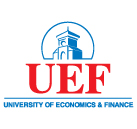Workshop "University study methods for international relations students K2021" – Session 1
To equip students with the basic knowledge and skills of studying at university level; distinguish the difference between high school and university learning environments & understand the university learning environment, and understand the learning methods and skills needed at university, help new students study more effectively, the Faculty of International Relations organized a series of Workshops "University study methods for international relations students K2021" - Session 1, with the topic: Skills for finding resources documents, read and annotate documents.
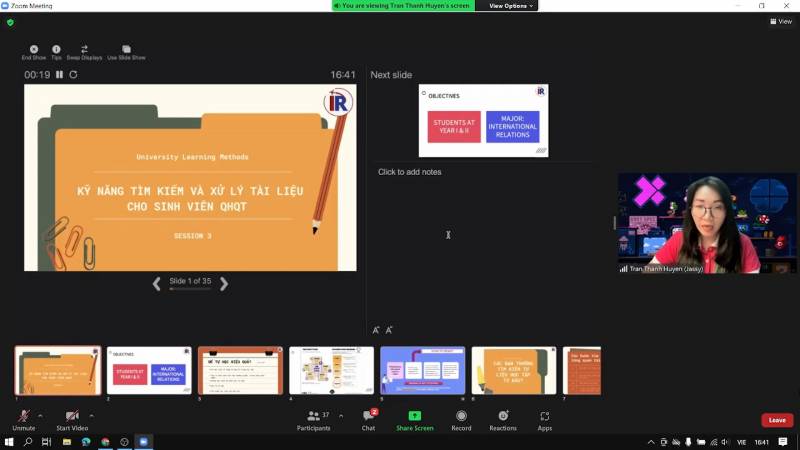
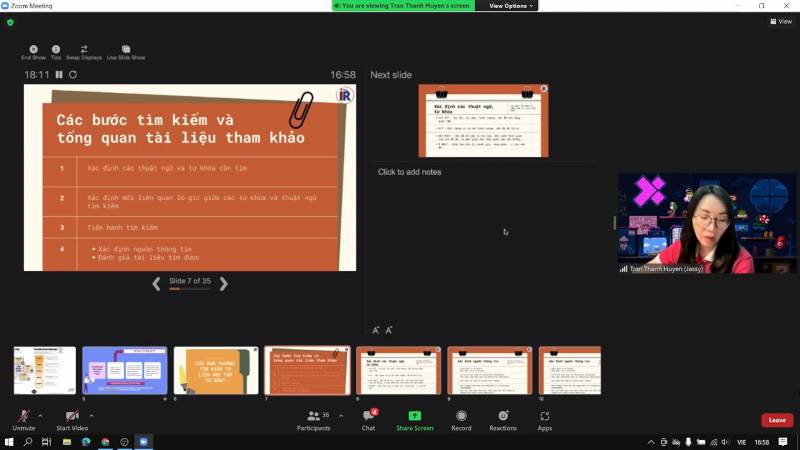
The training session revolved around the content of analyzing and instructing students how to search and read documents for the subject History of International Relations 1 to help them have a more practical approach. The tutorial took place under the guidance of Dr. Tran Thanh Huyen, Dean, Faculty of International Relations
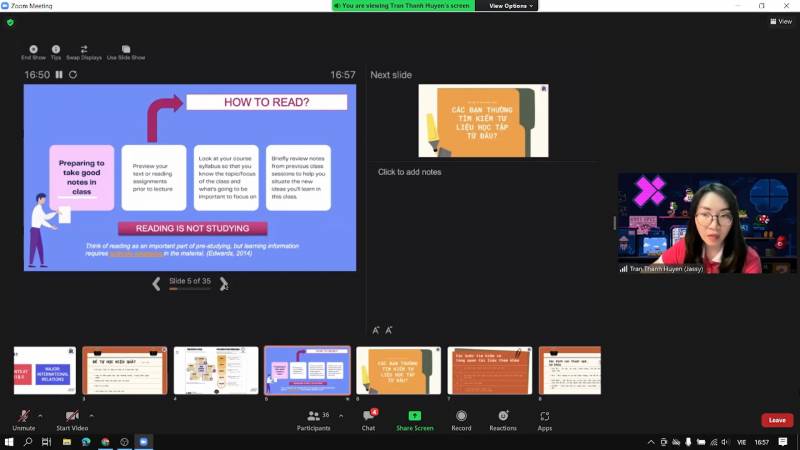
At the beginning, Ms. Huyen reiterated the final assessment form such as multiple-choice, essay, role play with practice and presentation. By summarizing the exam forms, Ms. Huyen wants to emphasize to the Faculty's students that in each exam form, we will have different ways of reading books, taking notes on documents to achieve maximum learning efficiency. For example, with History of International Relations 1, you will have a presentation exercise on a given topic and your presentation level will stop at level 1 - this level requires students to have the skills to search for documents suitable to the topic's content, build an outline of a presentation that closely follows the content of the subject outline to present the basic knowledge of that topic.
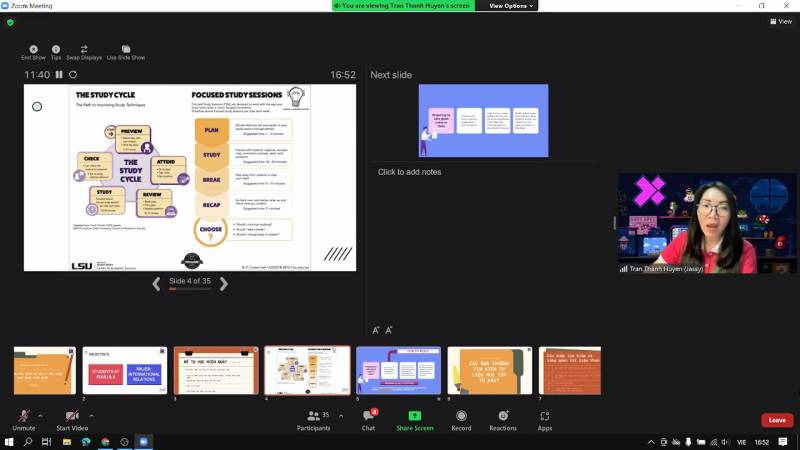
Good reading and note-taking comes from the self-study skills of each student. According to Dr. Tran Thanh Huyen, self-study is the building of clear learning goals, forming the habit of studying regularly, learning from books, from the most basic things and among them, how to find materials in the process of self-study plays an important role. In particular, Ms. Huyen reminds students to pay attention to novelty in the process of searching for books and documents. She also explains what a scientific resource is to students. When searching and researching, students must pay attention to outline clear timelines for each step, determine where to stop so as not to waste time, create rigor and seamlessness in the learning process.
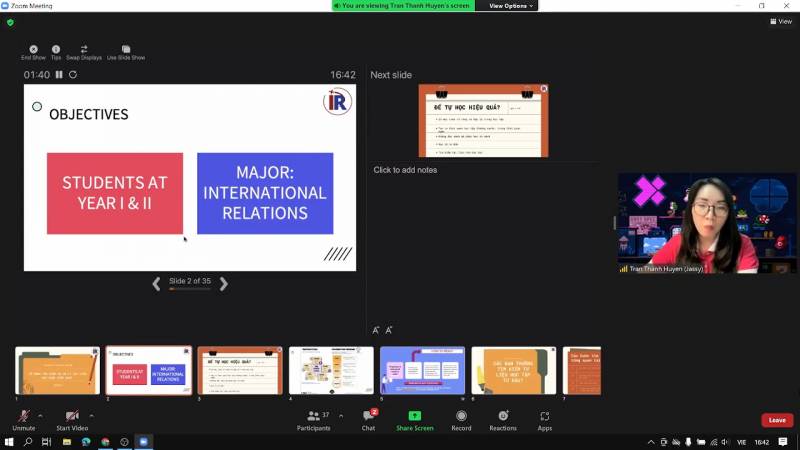
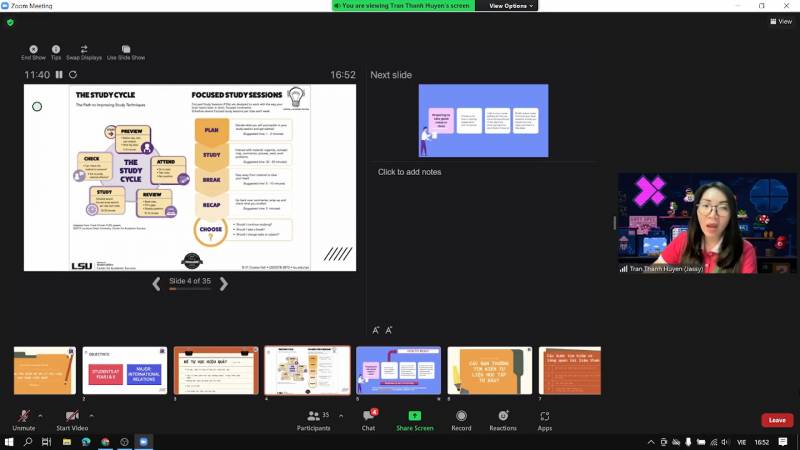
An important part of the sharing session is that Ms. Huyen guides students on how to exploit the topic, select materials and main content for the presentation in the subject History of International Relations 1. Their questions revolve around searching for materials, ideas, and planning content for the presentation. Ms. Huyen analyzes the course outline to help students understand the requirements of the Lecturer, thereby guiding students to read the material appropriately by answering the questions When, Who, What, Why, How for the assigned topic. After answering the above questions, students should search for materials by:
+ Identify terms and keywords related to the topic.
+ Determine the logical relationship between the topic, the term, the keyword to find
+ Conduct a search based on Google's algorithm and check the source material.
The training session that combined theory and practice in the History of International Relations 1 subject helped students understand how to construct ideas, search and read documents effectively. The next training session will be on the topic of listening and taking notes.
